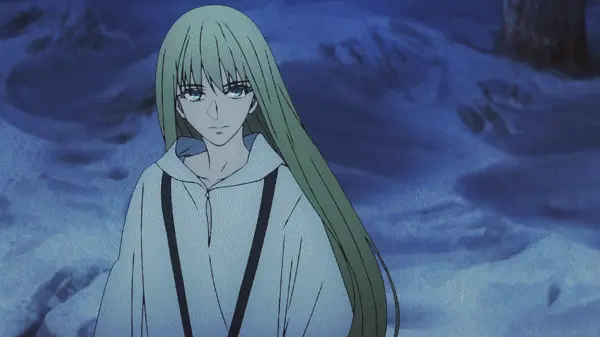I haven't started it yet, I reread Bullshit Jobs again and then the last entry in The Expanse series came out a couple weeks ago so I just read that and I've had this copy of Caliban And The Witch that I found at work sitting on my desk reminding me to get to it at some point. It's not too long so I should have some impressions on it within the week.
how is the last entry to The Expanse? I left off after they opened the portals and settled the first planet
I liked it, I can't say I didn't see the ending coming from the last book but that's not necessarily a bad thing. It ended about the only way it could have what with all of the proto-molecule and cosmic horror stuff that gets built on in the later books.
Also you should definitely pick it up again, there are a few of the most impactful moments in all the sci-fi I have ever read in terms of character development and story arcs along the way. The fifth book seems like a bit of a departure from the overall narrative but it is actually necessary to drive the events of the remaining half of the story and is interesting in its own right, much more character focused and the crew spends most of it separated by circumstance.
Read it a while back but I think it's essential reading for a modern communist. Really details how gender and socially reproductive labor is incredibly important in the continuing primitive accumulation of how capital functions. Wonderfully written too.
Finished Capitalist Realism, found the beginning very interesting and insightful but I feel it fell off towards the end. I cannot, but compare him to Graber, whose writing I much prefer. Both often have a somewhat vague and/or provocative thesis, but Graber follows up with concrete examples to clarify his point and data to prove that his thesis is not just a vibe. Fisher meanwhile follows up on his thesis with postmodern philosopher and movie quotes, which often left me with the sentiment "yeah, thats sorta plausible" or "that's an interesting way to think about it" but ultimately unsatisfied.
Now I'm reading Mexican Gothic, which was a contender for the halloween spooky reading series and I really like it. Almost missed my train stop today because I was so immersed in it
Does it pick up? I stopped a quarter of the way through feeling like it was just a white victorian novel with a superficial change of setting and allusion to racism. Curious to hear how it develops!
Well, it might just not be for you. I guess I would say it picks up when she talks to the woman in the village, but by the time she gets told that she's a magnificent mestizo I was already hooked, so..
Arthur takes place far far in the future, where the capitalism killed humanity and aardvarks finally reached intelligence, creating their own society built around libraries. It is the 1st day on the 21st month of the 708th year of the aardvark calendar. This is the story of Arthur
I travelled to a wedding this weekend and finally got around to reading Blackshirts and Reds. I also packed Wretched of the Earth in case I have time on the train back.
I've been eating my veggies, and I love how easy Parenti is to read after some old-timey Marx. Might even be able to get my anti-communist lefty friends to read this one.
Working on a large musical piece based on Lovecraft's "At the Mountains of Madness," so I've been slowly rereading that and taking notes on the story skeleton and some choice quotes to help flesh out how each movement will go.
I'm a big Dunwich Horror and Shadow Over Innsmouth fan myself. Charles Dexter Ward kept me turning the pages as well, I was actually really fond of all his descriptions of the towns in that one.
Oh wow, that is a really deep connection, thank you for sharing that! Hope you're in a better spot now, and glad you still love the story!
On a somewhat related note, mind if I DM you a link to my music? It's all HPL based, and the band name is something you'll get a kick out of.
Finished Dune. Was apprehensive at first due to what felt like at times an info dump of lore and world building, but couldnt help but kinda get swept along by it and ended up enjoying it quite a bit.
I enjoyed its attempts to dig into and explore tropes like the white saviour/ great man myths, and also references to colonialism and Islam. However, I felt like the book sometimes still, probably unintentionally still fell into these tropes. Albeit was probably only 15/20% of the time in the book, but was still pretty noticeable and a bit cringeworthy when it did.
Byzantium in the Seventh Century by John Haldon
Roman reading is low-key cringe but this book is materialist af & covers a really essential period. The vision of the Roman empire 'leaving a light on' in the "Dark Ages" is pretty fundamentally flawed, Haldon does a long duree classic & demonstrates how the Roman ruling class dismantled the urban hellenistic culture of antiquity on purpose and how the Byzantine state was subject to the same developments of deurbanisation & decentralisation as western europe. Its really interesting stuff & its turned me onto a lot of primary sources ---> i've only started John Lydus' "On the Powers" so far: literally the definitive text on Roman bureaucracy, from a member of that bureaucracy. An astounding book, tbh.
I also read the Sphrantzes Chronicle, which is a pretty brief history from a greek exile from the fall of Constantinople. the author was a close associate of the last emperor and there's cool personal details in the narrative. my edition also had an account of the siege tacked onto the end, which was kind of interesting. mostly impressed by the walls on constantinople, 1,000 years old but taking cannonfire for almost 3 months :brow:
Consider Phlebas. I've been watching ds9 for the first time and wanted to try out the less lib version
I have read several books thanks to my semester ending "early"!
Mexican Gothic, one of our runner ups in our October selection and a lovecraftian/guillermo del toro style gothic romance by Silvia Moreno-Garcia. It is a slow-burner of a book, but when it picks up, it doesn't let off the gas. The mystery of the Hill Place House wouldn't let me put it down.
The Only Good Indians, another runner up in our October selection, this one a ghost story/revenge haunting of four native americans who commit a violation against mother nature and nature wants its due. The opposite of a slow burner, I devoured this book as well, could not put it down. But the tension builds and snaps, builds and snaps. I loved it so much.
THICK by Tressie McMillan Cottom, it's been a while since I read something more on the "academic" side of things. A fascinating insight into the personal life and sociological study of Black Women by a Black Woman. Moving, funny, enraging, and saddening all at once. I think it is decidedly left of liberal, and wish it had been more explicit in its leftish outlook, but it was insightful nonetheless.
John Berger: Selected Essays or Selected Essays: John Berger (?), edited by Geoff Dyer. John Berger was a prolific author, so the problem of "where do I start?" has hopefully been tackled to some degree of success with this collection. I am only in the beginning pages, but he is an unapologetically socialist, art critic, and thinker. I find his writing completely different from what I am used to, and therefore a breath of fresh air.
recently finished reading blessed is the flame by serafinski
interesting book with some persuasive points about the virtue of resistance even in the most hopeless of situations with no hope of success, and some incredibly grim-but-inspiring stories of resistance during the holocaust
but i disagree fundamentally with the idea that the current situation for your average person in the west is comparable to the holocaust - the author is clear that the severity of the situation isnt comparable, but the hopelessness of meaningfully breaking free of the situation is. the difference is not only in our far greater capacity to find moments of real happiness in a lived life, but also that the complete hopelessness of the camp situation was due to the overwhelming power of the nazi state outside the camp even if the camp guards were overthrown. in our situation, the world itself would be the camp with no overwhelming nazi state outside, and while the odds may still be grim, i reject the idea that it is futile to spend our efforts in an attempt to build something better rather than doing adventurism in pure resistance-for-resistance-sake.
i dont want to dismiss the book, since i think its arguments are important for people who are actually in a comparable situation - and im sure there are people in the world who legitimately are, and perhaps with the climate crisis etc we will some day be too. but im not persuaded to go out and do an adventure, and yeah one of the groups he highlights in his call to adventure decided that the most worthwhile praxis would be to bomb a greenpeace office for being reformist, soooo...
currently reading graebers towards an anthropological theory of value which is great so far
Started reading Roland Boer’s Criticism of Religion which looks at how Christianity inspired a few Marxist writers. It’s starting pretty dry and I feel assumes you have some background knowledge about the writers it discusses (I don’t). We’ll see how long I stick with it.
Otherwise been listening to an audiobook of The Grapes of Wrath by John Steinbeck. I’m actually really enjoying it!





